A Shift of Tone in the Migration Debate in the European Parliament
Adelina Marini, September 10, 2015
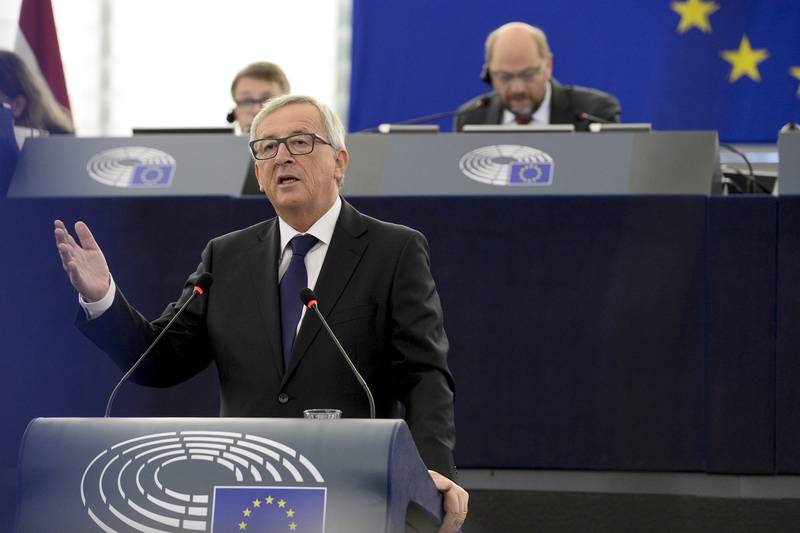 Compared to the first debate on the migration and refugees issue last spring, named historic by many in Strasbourg, Wednesday's discussion in the European Parliament sounded different. At the end of April, MEPs split by partisan lines on EC President Jean-Claude Juncker’s ideas for legalising migration and the creation of a quota mechanism for distribution of refugees. The division back then was oriented along the left-right line. Yesterday, however, with Juncker turning for an hour and a half his first State of the Union address into a speech on the duty of Europe to the refugees and European historic responsibilities, the debate that ensued sounded way more placid. As most prominent adversaries of the European solution remained the conservative groups, dominated by British members, like the European Conservatives and Reformists and Europe of Freedom and Direct Democracy, but even the Brits demonstrated a palpable change in attitude.
Compared to the first debate on the migration and refugees issue last spring, named historic by many in Strasbourg, Wednesday's discussion in the European Parliament sounded different. At the end of April, MEPs split by partisan lines on EC President Jean-Claude Juncker’s ideas for legalising migration and the creation of a quota mechanism for distribution of refugees. The division back then was oriented along the left-right line. Yesterday, however, with Juncker turning for an hour and a half his first State of the Union address into a speech on the duty of Europe to the refugees and European historic responsibilities, the debate that ensued sounded way more placid. As most prominent adversaries of the European solution remained the conservative groups, dominated by British members, like the European Conservatives and Reformists and Europe of Freedom and Direct Democracy, but even the Brits demonstrated a palpable change in attitude.
Leader of the third largest EP group, ECR, Syed Kamall (Great Britain) even asked for common actions, although this did not agree with his main argument that states should be left alone to decide what to do, instead of having decisions dropped on them. A possible reason for this shift is that a lot has changed since end-April. First of all the scale of the crisis changed. If back then the EC was preparing a package of measures to shelter a total of 40 thousand refugees, today we are talking about 120 thousand more. The route has changed as well. The Mediterranean is no longer the major artery of the migrant-refugee flow. Now it is the Balkan way, which passes through Macedonia, Serbia, and leads to Hungary. Media attitudes have also changed after multiple shots of conflicts with police in Macedonia and Hungary, the building of walls, the drowned boy, and all other images from the clash between people fleeing the horror of war and Eastern Europeans, who are terrified by the scale of the refugee wave, fearing loss of identity.
We're not us when we see refugees
The start of the long anticipated speech of the Luxembourg veteran strongly reminded in its content of a commercial slogan, which went “You’re not you when you’re hungry”. He explained to the packed auditorium in Strasbourg what Europe is not. It is not pushing back boats, torching refugee camps, closing our eyes to the poor and helpless. “Europe is the baker in Kos who gives away his bread to hungry and weary souls. Europe is the students in Munich and in Passau who bring clothes for the new arrivals at the train station. Europe is the policeman in Austria who welcomes exhausted refugees upon crossing the border. This is the Europe I want to live in,” said Mr Juncker and reminded that almost everyone in Europe was once a refugee. He put the current situation in perspective.
Since the beginning of this year, close to half a million people have arrived in Europe, most of whom are refugees fleeing the war in Syria, the terror of Islamic State in Libya, or the dictatorship in Eritrea. The largest number so far has been received by Greece – 213 thousand people – followed by Hungary with 145 thousand, and Italy with over 115 thousand. “There is certainly an important and unprecedented number of refugees coming to Europe at the moment. However, they still represent just 0.11% of the total EU population. In Lebanon, refugees represent 25% of the population. And this in a country where people have only one fifth of the wealth we enjoy in the European Union”, explained the boss of the European Commission, after starting his address with the words that the state of the Union today is bad. “There is not enough Europe in this Union. And there is not enough Union in this Union.”
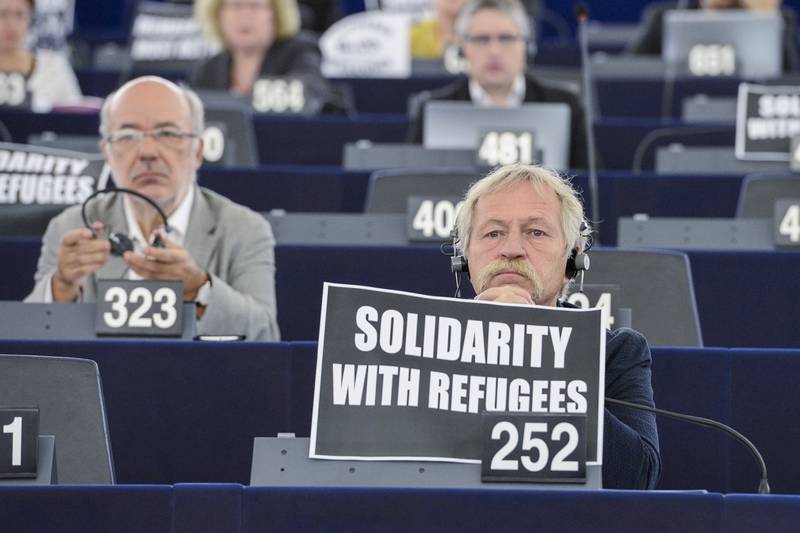 This is why he suggested that the revised proposition for distribution of 160 000 people from Greece, Hungary, and Italy is urgently accepted. It is about 120 000 additional to the 40 000 of the previous proposal. Distribution is again proposed to be mandatory, using the same criteria as in the old proposal. Quotas are based 40% on population size, 40% on GDP, 10% on average asylum application numbers, and 10% on unemployment. Besides that, the EC proposes a permanent mechanism for redistribution, which however is yet to be developed. It will stand on some slightly different criteria, like the number of asylum applications filed over the last six months and the number of illegal border crossings over the last six months. The permanent mechanism will take into account also the needs of the people looking for asylum, their marital status and professional qualifications. Jean-Claude Juncker announced his support for asylum candidates being able to work while they wait for their papers to be processed.
This is why he suggested that the revised proposition for distribution of 160 000 people from Greece, Hungary, and Italy is urgently accepted. It is about 120 000 additional to the 40 000 of the previous proposal. Distribution is again proposed to be mandatory, using the same criteria as in the old proposal. Quotas are based 40% on population size, 40% on GDP, 10% on average asylum application numbers, and 10% on unemployment. Besides that, the EC proposes a permanent mechanism for redistribution, which however is yet to be developed. It will stand on some slightly different criteria, like the number of asylum applications filed over the last six months and the number of illegal border crossings over the last six months. The permanent mechanism will take into account also the needs of the people looking for asylum, their marital status and professional qualifications. Jean-Claude Juncker announced his support for asylum candidates being able to work while they wait for their papers to be processed.
According to the EC, the proposed mechanism must be mandatory but exceptions are allowed with the so called “solidarity clause”. If for valid and objective reasons, like natural disasters, a member state is not able to participate fully or partially in the redistribution it will have to pay a fee in the EU budget at the amount of 0.002% of its GDP. In the span of 12 months the EC will evaluate if non-participating was justified or not.
A new moment in the proposal of the EC is the formation of a common EU list of safe countries of origin. As stated earlier, all Western Balkans countries and Turkey are on this list. Actually, they are the only ones on this list. The EC was guided in the list’s creation by the criteria in international and European law. Thus safe countries are deemed those that, as a whole, have a democratic system of government, there are no persecutions, torture, or inhuman and degrading treatment or punishment. There are no threats of violence or armed conflict. In establishing the composition of the list consideration was given to the fact that some states have a candidate status for EU membership, which means they abide by the Copenhagen political criteria guaranteeing democracy, rule of law, human rights, respect and protection of minorities.
As euinside reported, the existence of these prerequisites is quite debatable in many of the Western Balkans countries. It is enough to mention Macedonia, which received candidate status, meaning it covers the Copenhagen criteria, 10 years ago but has since degraded into a country that needs EU facilitation to solve its own domestic political conflicts.
In making the decision which countries should be in the list the number of granted asylum applications was taken into account. During the Western Balkans summit in Vienna at the end of August German Chancellor Angela Merkel stated that it should be explained well to citizens of Albania, Bosnia and Herzegovina, Serbia, Macedonia, and Kosovo that their asylum applications would not be respected and that applications from states with military conflicts, like Syria for example, should be assessed with priority. In his address to MEPs, however, Jean-Claude Juncker assured that the EU list does not mean revocation of the fundamental human right of asylum to citizens of these states, “but it allows national authorities to focus on those refugees which are much more likely to be granted asylum, notably those from Syria”, he said.
A review of national lists reveals that two EU member states do not consider Albania, Bosnia and Herzegovina, Macedonia, Kosovo, and Serbia to be safe countries – Slovakia and Ireland. Slovakia sees only Montenegro as safe, 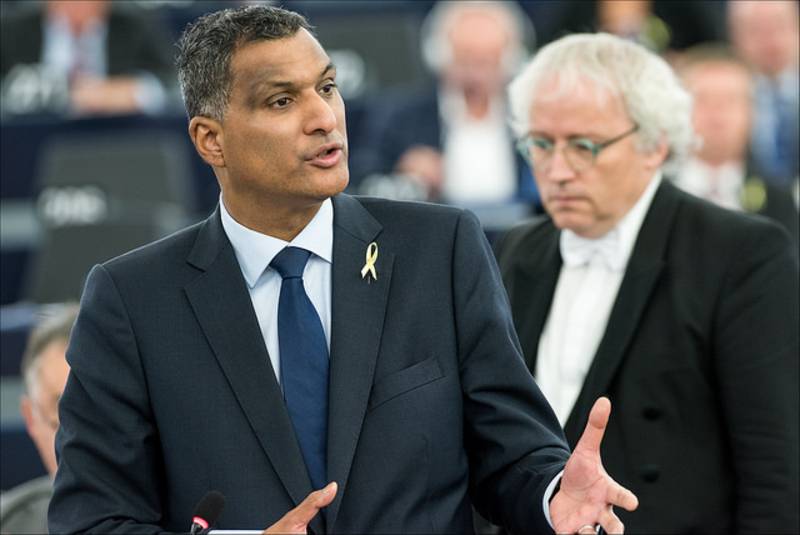 while the Irish list contains only South Africa and none of the Western Balkans states or Turkey.
while the Irish list contains only South Africa and none of the Western Balkans states or Turkey.
Another important proposal made by Juncker is the establishment of an urgent trust fund for Africa. The EC has already transferred 1.8 billion Euros in it. Its aim will be to finance measures for improving stability and uprooting the causes for illegal migration from the Sahel regions, lake Chad, the Horn of Africa, and Northern Africa. In this respect, High Representative of the European Union for Foreign Affairs Federica Mogherini noted that the EU should work not only at the sea borders of Libya, but the land ones as well, which have been neglected so far.
Unlike the previous debate in April, today the leader of the largest group in the European Parliament (EPP) Manfred Weber (Germany) made a far milder statement in saying that it is not Europe, but rather national egotisms that had failed. He criticised indirectly those member states which stated preferences of accepting only Christian refugees (Hungary and Slovakia). “Europe needs to fulfil its humanitarian duty, helping those fleeing for their lives, and as a Christian-Democrat, I want to reiterate that is not Christian rights, but human rights that Europe invented." He urged Europe to show humanity. Leader of Socialists and Democrats Gianni Pittella (Italy) pointed out in his speech that the seat of European Council President Donald Tusk was empty. The European Parliament insisted that Mr Tusk participate in the debate but he is on an official visit to Israel and the Palestinian territories.
Guy Verhofstadt, leader of the Liberals, who was the most outspoken MEP in his criticism of Donald Tusk’s absence from Strasbourg on September 9th, showed understanding to the agenda of the former Polish PM during his speech but continued with his criticism that Tusk needs to tour all the capitals in order to convince member states in the need of joint actions. He even voiced his regret that member states’ leaders were not invited to hear Juncker’s address, as it is doubtful he receives full 90 minutes time at European Council meetings.
One of the most critical and Euro-sceptic groups in the EP – the European Conservatives and Reformists – was quite milder on the subject. Its leader Syed Kamall (Great Britain) called for Euro-realism. He once again repeated his argument that there should be some discernment between economic migrants and refugees and even said that some in the auditorium were deliberately not making this distinction. Regardless of explaining that decisions should not be imposed on member states for this would only strengthen finger-pointing, he asked for working together, which is a considerable change in tone for him. The position of British Euro-sceptic Nigel Farage of the Europe of Freedom and Direct Democracy group remained unchanged, although a certain mellowing down was noted in his tone as well. Once more he warned of the threat that fighters from Islamic State could sneak in with the refugees and urged again that the Australian model of outpost centres for asylum application processing is used.
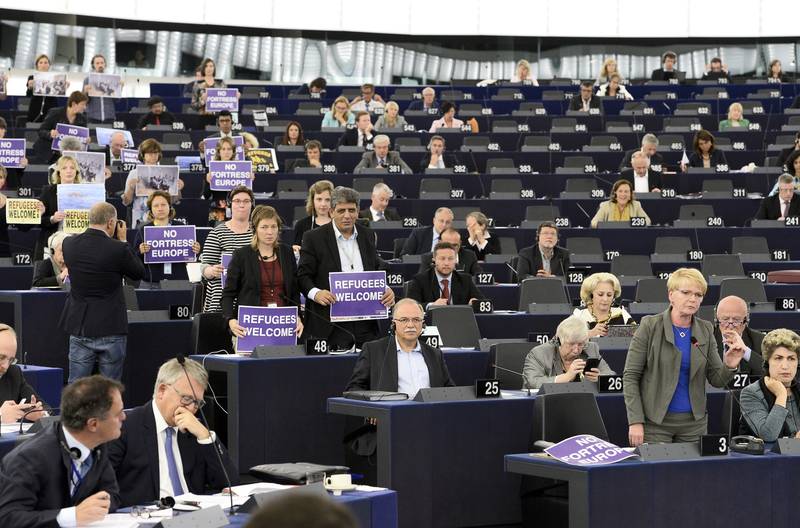 The first discussion of the new proposal is set for Monday during the emergency meeting of ministers of internal affairs and justice. There, the emergency sheltering mechanism must be approved by qualified majority and after consultations with the European Parliament, while the permanent solidarity mechanism must be accepted using a joint procedure with the EP. Positions, stated before Juncker’s address, most of all by countries of the Visegrad Group, clearly show that there is going to be a difficult battle in the Council. This is why, at the end of the debate in Strasbourg, Jean-Claude Juncker urged the EP to come up with as unified position as possible, for this would be a strong message to member states. On Thursday, the European Parliament will be voting on a resolution on the refugees, initiated by the group of the Greens and European Free Alliance. Rapporteur on it is Ska Keller (Germany).
The first discussion of the new proposal is set for Monday during the emergency meeting of ministers of internal affairs and justice. There, the emergency sheltering mechanism must be approved by qualified majority and after consultations with the European Parliament, while the permanent solidarity mechanism must be accepted using a joint procedure with the EP. Positions, stated before Juncker’s address, most of all by countries of the Visegrad Group, clearly show that there is going to be a difficult battle in the Council. This is why, at the end of the debate in Strasbourg, Jean-Claude Juncker urged the EP to come up with as unified position as possible, for this would be a strong message to member states. On Thursday, the European Parliament will be voting on a resolution on the refugees, initiated by the group of the Greens and European Free Alliance. Rapporteur on it is Ska Keller (Germany).
The draft calls for urgent review of the Dublin Regulation and voices disappointment by the lack of solidarity with refugees in some parts of Europe. In the draft resolution, there is voiced concern by the proposal that countries of the Western Balkans are to be considered safe states of origin. It is further stressed that the state of human rights and civil liberties in those countries is often not a priority to the EC and this leads to the conclusion that there are no more violations of human rights there.
Translated by Stanimir Stoev
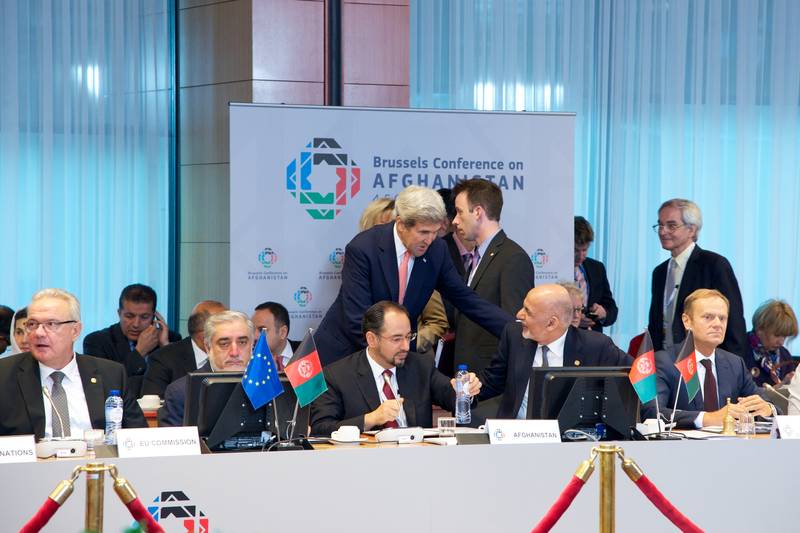 | © Council of the EU
| © Council of the EU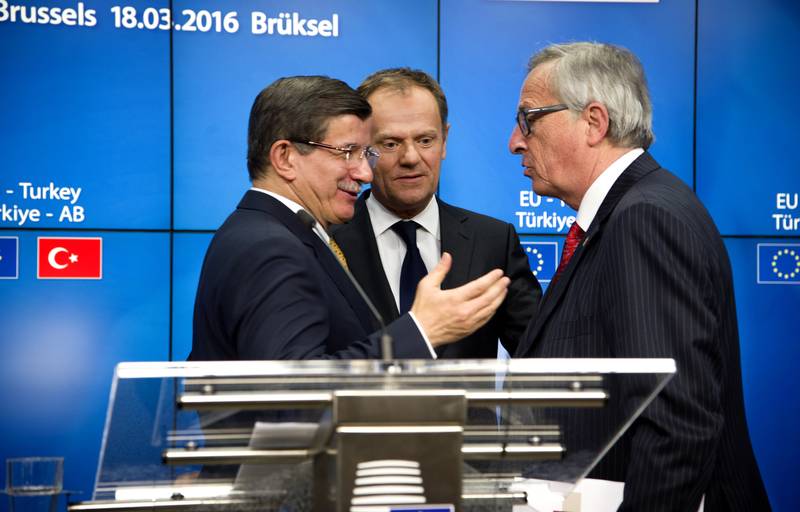 Davutoglu, Tusk, Juncker | © Council of the EU
Davutoglu, Tusk, Juncker | © Council of the EU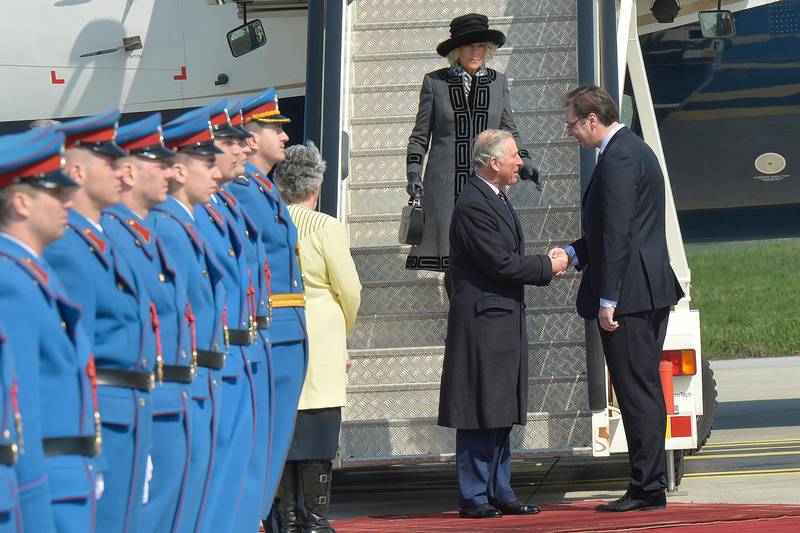 | © Vlada RS
| © Vlada RS